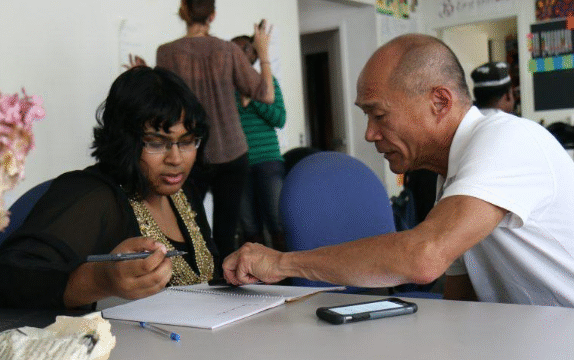The way people learn and showcase their skills is changing
rapidly. While traditional college degrees once stood as the
primary marker of achievement, learning certificates are now
emerging as powerful credentials that bridge education, skills, and employability. These certificates, often earned online, offer proof of specific abilities and knowledge, making them especially valuable in a world where industries evolve quickly and career paths are rarely linear. As technology advances and workplaces demand more flexibility, the future of learning certificates looks brighter than ever.
One of the most important reasons learning certificates are gaining attention is their adaptability. Unlike degrees that take years to complete, certificates can focus on specialized areas and keep pace with industry shifts. For instance, when a new technology or software tool enters the market, certificate programs can be developed within months to train people on how to use it. This speed ensures that learners are always current, and employers can trust that a certificate holder has up-to-date expertise. As industries like artificial intelligence, green energy, and digital marketing continue to evolve, certificates will play a major role in preparing workers for emerging fields.
The growing acceptance of certificates by employers is another sign of their future importance. Many hiring managers no longer see certificates as secondary to degrees. Instead, they view them as practical evidence that a candidate has the skills to perform specific tasks. This shift is happening because companies now value real-world ability and productivity as much as formal education. In fact, some employers even create partnerships with online learning platforms to design certificate programs that directly match their workforce needs. In the future, this collaboration between industry and education is likely to become the norm, making certificates even more relevant and reliable.
Another exciting trend is the integration of certificates into digital platforms that professionals already use. For example, people now add certificates directly to their online profiles on networking sites, allowing employers to instantly verify skills. This easy sharing of achievements boosts visibility for job seekers and helps recruiters make quicker decisions. As technology continues to improve, certificates may become linked with blockchain systems that provide secure, tamper-proof validation. This will reduce the risk of falsification and increase trust in digital credentials, making certificates more powerful than ever before.
The accessibility of learning certificates also makes them a key part of the future of education. Traditional degrees can be expensive and time-consuming, placing them out of reach for many learners. Certificates, on the other hand, are often affordable, flexible, and available online. This opens the door for individuals from diverse backgrounds to build their careers without heavy financial burdens. In the future, certificates are likely to become even more customizable, allowing people to stack different credentials together to form a unique learning journey that fits their career goals. Instead of following one rigid path, learners can mix and match certificates in areas like project management, data analysis, and leadership to create a personalized portfolio of expertise.
As workplaces become more global, certificates will also help standardize skills across borders. A certificate earned online from a respected institution can carry weight in many countries, giving workers opportunities to find jobs beyond their local markets. This international recognition will make certificates a valuable tool for mobility, whether someone wants to work abroad, collaborate on global projects, or join a remote team. The digital nature of certificates ensures that they can be shared instantly anywhere in the world, breaking down barriers and supporting an interconnected workforce.
The future of learning certificates is also tied to lifelong learning. In the past, education was often seen as something people completed before entering the workforce. Now, with industries changing so quickly, continuous learning has become essential. Certificates provide a practical way to stay updated without committing to long programs. A professional can return to learning throughout their career, earning new certificates whenever they need to refresh their knowledge or expand into a new area. This lifelong approach to education will help individuals remain competitive and adaptable no matter how their industries change.
Technology will continue to shape the way certificates are earned and used. Virtual reality, simulations, and interactive platforms are making online learning more engaging and practical. Instead of just reading or watching lectures, learners can practice skills in digital environments and then earn certificates that demonstrate hands-on ability. Artificial intelligence will also personalize certificate programs, guiding learners toward courses that match their strengths, interests, and career goals. With these advancements, certificates will not just be symbols of learning but evidence of meaningful, skill-based training.
Another aspect of the future of certificates is their role in bridging gaps in education. Not everyone has access to traditional higher education, but certificates can provide a pathway to professional growth. By focusing on practical skills, they allow individuals to build confidence and credibility step by step. For example, someone without a degree can start with a short certificate, gain employment, and then pursue more advanced certificates over time. This pathway creates opportunities for upward mobility and reduces barriers to career development. As more institutions and employers recognize this value, certificates will become even more essential in promoting inclusive access to education.
Looking ahead, the relationship between certificates and degrees may evolve into a blended model. Instead of seeing them as separate, universities and colleges might integrate certificate programs into degree pathways. Students could earn certificates along the way, giving them credentials they can use immediately while working toward a larger academic goal. This approach not only adds flexibility but also ensures that learners see a return on their educational investment sooner. Certificates may also serve as stepping stones that encourage learners to return to formal education later in life, creating a cycle of ongoing growth.
Ultimately, the future of learning certificates lies in their ability to keep education relevant, accessible, and adaptable. In a world where industries transform quickly, certificates act as bridges that connect people to new opportunities. They prove skills, build confidence, and open doors to careers that may not even exist today. While degrees will continue to hold value, certificates are carving out their place as equally respected and practical credentials. By offering flexibility, affordability, and global recognition, they represent a future of education that is more inclusive and responsive to the needs of both learners and employers.
As we move forward, it is clear that learning certificates will play an increasingly vital role in shaping the way people learn, grow, and succeed. They are not just short-term achievements but powerful tools for lifelong development. Whether you are a student exploring your options, a professional seeking to advance, or someone looking to switch careers, certificates provide a flexible and future-ready path to knowledge. The future belongs to those who embrace continuous learning, and certificates are the keys that will unlock those opportunities.






